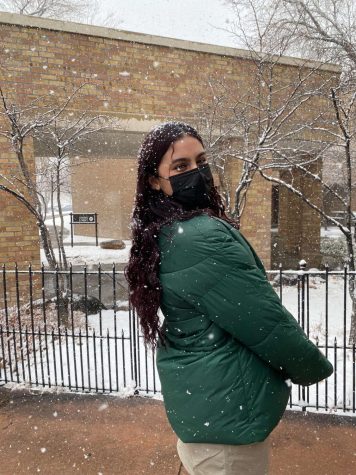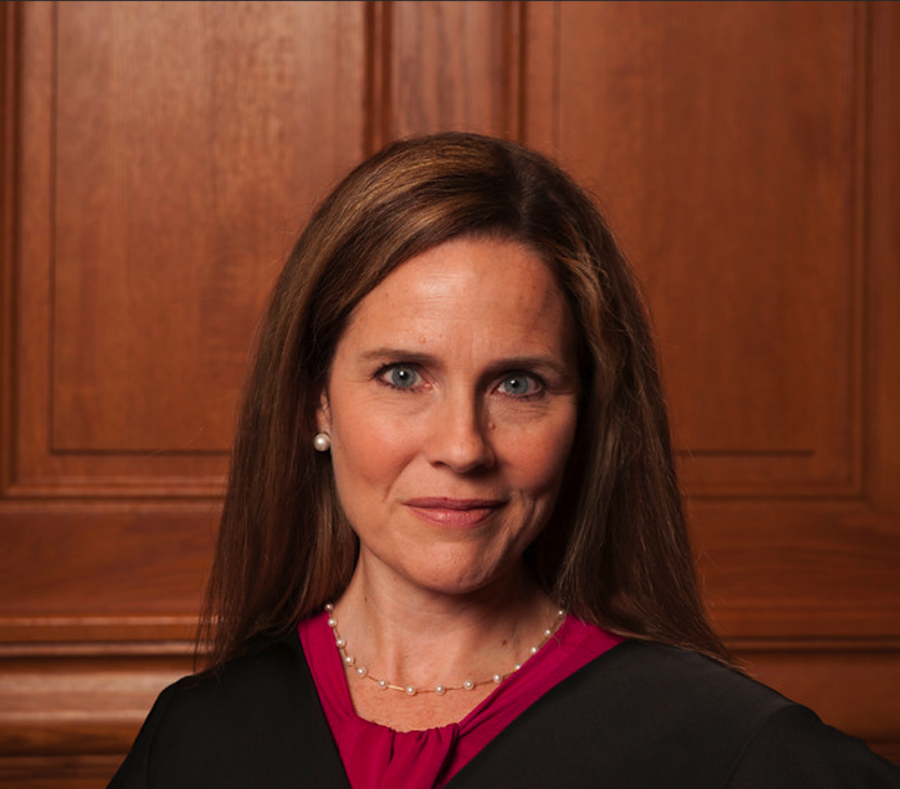Who is Amy Coney Barrett?
Introducing The Next Supreme Court Justice
Amidst the controversy surrounding Justice Ginsburg’s replacement, President Trump has decided to go ahead with a replacement. Many Democrats opposed this action, saying a replacement before the 2020 presidential election is unjust because the American people have no say in the political affiliation of the justice; results of recent polls showing Biden in the lead suggest that a conservative judge is not what the public may want. Supreme Court justices have a crucial role in determining how our country functions. As a democratic nation, our reality is meant to be shaped by what Americans believe in. Republicans, on the other hand, say President Trump has a constitutional authority to choose to appoint a judge as a part of his four-year term. On Saturday, September 26th, Trump ended any speculation on either side, officially nominating Amy Coney Barrett.
Born and raised in New Orleans, Barrett attended an all-girls Roman-Catholic high school where she was student body vice president. She went on to Rhodes College and graduated cum laude from Notre Dame law school. For the past two decades, she has taught as a professor at Notre Dame and has served on the US court of appeals for the seventh circuit since 2017. Before becoming a professor, she was employed at a Texas law firm where she researched and assisted in the case of Bush vs. Gore, a lawsuit that decided the result of the 2000 Presidential election. While on the US court of appeals, Barrett’s rulings have made impacts on several cases.
One instance was a case of employer discrimination. The case of EEOC v. AutoZone argued that Autozone’s assignment of employees to different stores based on race was unconstitutional. The panel prior to Barrett’s confirmation ruled in favor of Autozone. A petition for a rehearing was heard later on where Barrett voted against any changes to the original decision, resulting in a 5-3 decision against EEOC.
Another case heard during her term was that of Yafai v. Pompeo, in which a Yemeni citizen, Mohsin Yafai, took issue with the treatment of his wife. He argued that the rejection of his wife’s visa was unconstitutional. Barrett voted in a 2-1 decision against Yafai.
In 2019, Barrett also dissented against a majority decision in the case of Kanter v. Barr, in which the plaintiff sought a firearm, although he had been convicted of a non-violent crime. The majority of judges upheld laws preventing felons from possessing firearms, but she argued that denying firearms to nonviolent felons violated the second amendment.
If confirmed, Barrett would fill the seat vacated by the recent death of Ruth Bader Ginsburg, and would be the fifth woman to ever serve on the supreme court. Barrett’s views, however, are a far cry from the liberal-leaning Ginsburg. Her past rulings all represent conservative beliefs. Her nomination was Trump’s attempt to please the Republican party and if appointed, she would make the supposedly non-partisan court six conservatives to three liberals. Barrett believes that justices should not be bound by Supreme Court precedent, meaning that she would not oppose overturning past legislation and this new reality could put many current cases at stake.
One of these cases is Roe v Wade, a 1973 landmark decision that protects a woman’s choice to terminate a pregnancy. In a 2013 Notre Dame paper, Barrett stated “life begins at conception,” leading many to believe that she would likely overturn Roe v Wade. The impact would be substantial, as the choice to legalize abortion would return to individual states rather than a nationwide mandate.
The second policy at stake is the Affordable Care Act, a health care reform that regulates insurance. The ACA has given over 20 million Americans insurance and if overturned, it could put 100 million Americans at risk of losing insurance. Barrett has criticized the ACA, saying it is “unconstitutional” and infringes on the religious freedom of employers. Another conservative judge would almost surely mean the end of the ACA.
The confirmation of Judge Barrett would have long-term implications. At only 48 years old, she would be the youngest justice ever appointed. Supreme court judges serve for life, meaning that Barrett could serve decades. With so much at stake, Amy Coney Barrett has the ability to fundamentally change the lives of millions of Americans.

When not making art, browsing Goodreads, or writing for The Advocate, Features Editor Noor Ali '23 is active in SDLC, Model UN, and Albuquerque Academy's...












